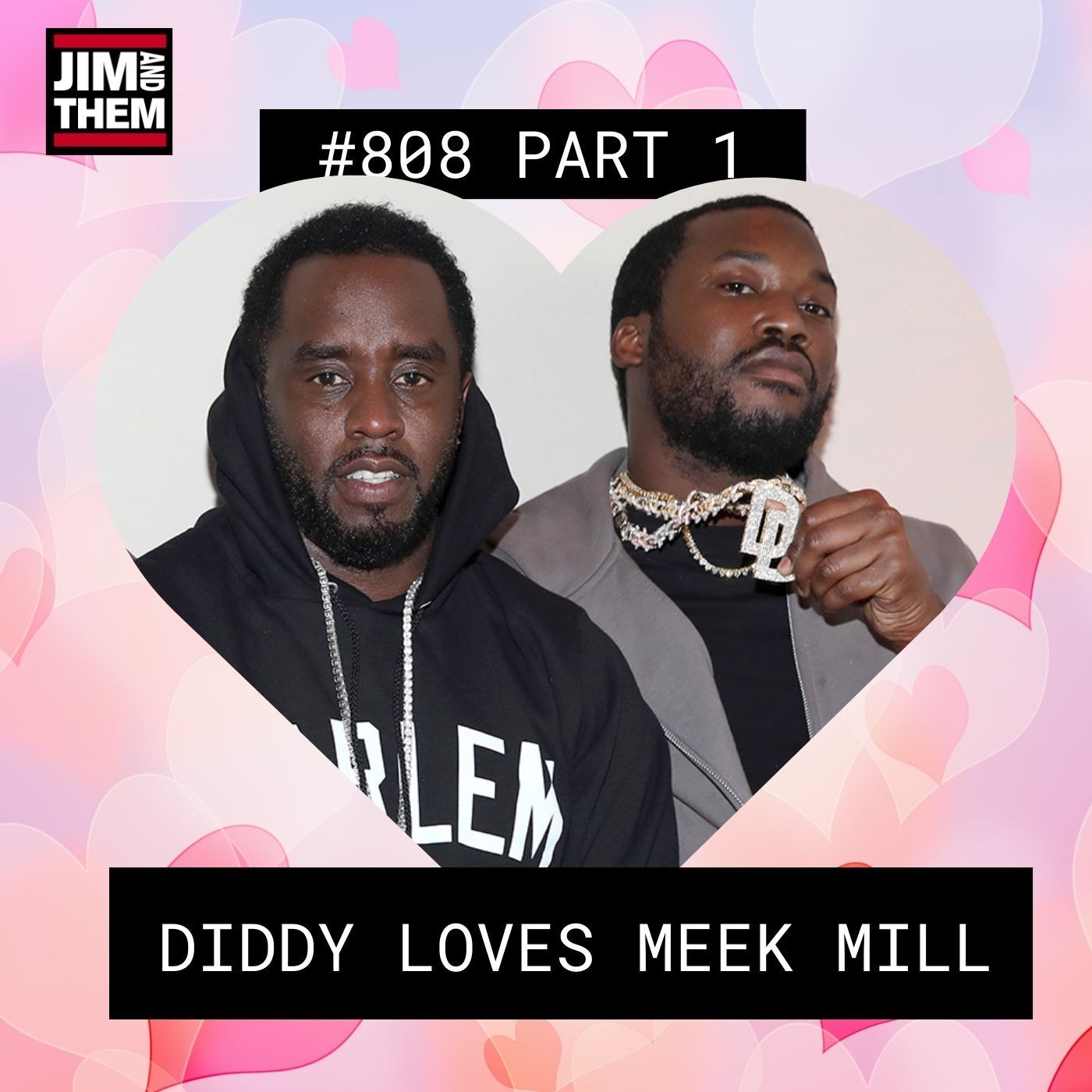AI-Generated Content
This article has been created using advanced AI technology to provide you with informative and engaging content.
AI-Curated Resources:
When conversations spark around big names, like those tied to the recent talk about Meek Mill and Diddy audio, it’s almost natural for folks to start looking a little closer at the words we use every single day. Sometimes, a single word can really make us pause and think, especially when it’s part of a famous person’s name or part of a widely shared conversation. This kind of public chatter, you know, it has a way of making us consider things we might usually just take for granted.
Public discussions, like those around the Meek Mill Diddy audio, have a funny way of bringing words into sharper focus. It’s a bit like how a spotlight makes a single actor stand out on a big stage. We hear a term, perhaps one we thought we fully grasped, and suddenly, it feels like there might be more to it than we first imagined. Words, as a matter of fact, carry a lot of weight, a lot of history, and sometimes, a lot of different ideas all at once.
So, what if we took a moment to truly dig into one of those words, the word "meek," for instance? It's a word that appears in many old writings, and its meaning has shifted a little bit over time, depending on where you look. This word, which shows up in discussions about the Meek Mill Diddy audio, has a rather rich background, and exploring it can shed light on how language itself grows and changes, and how our ideas about certain qualities have also developed.
- Young Actresses
- How Tall Is Harper Zilmer
- Melli Monaco
- Rick Hoffman Wife
- Hottest Female Anime Characters
Table of Contents
- What Does "Meek" Really Mean- A Look at Ancient Texts?
- Is "Meek" a Good Translation for the Original Greek Word?
- How Do Different Scriptures Describe the Meek?
- What About "Meek" and "Humble" in Matthew 11-29?
- The Hebrew Word- More Than Just "Poor"?
- Why Did Translators Choose Two Different Words for "Meek" and "Humble"?
- Jordan Peterson's Take on Inheriting the Earth?
- Understanding Meekness and Protection
- Meek Mill and Diddy Audio - A Deeper Look at the Word "Meek" Itself
What Does "Meek" Really Mean- A Look at Ancient Texts?
When we hear the word "meek," many of us might picture someone who is quiet, perhaps a bit timid, or even someone who just goes along with things. But if you look at how this word was used in older languages, particularly Greek, it tells a slightly different story. The Greek word often translated as "meek" is "πραΰς" (praus), and it actually carried a much broader sense than what we usually think of in English today. For instance, a war horse, a creature of immense power and controlled strength, could be described as "praus." That's a really interesting thought, isn't it?
The idea of "praus" in ancient texts did not have the rather negative or weak meanings that "meek" can sometimes carry in our current English language. It seems, in some respects, that our modern English has added some less favorable ideas to the word. So, while a powerful war horse might be called "praus" because of its disciplined strength, calling it "meek" in English wouldn't quite fit. This difference is pretty significant when you're trying to figure out the full meaning of old writings, especially when it comes to understanding things like the context around the Meek Mill Diddy audio.
Is "Meek" a Good Translation for the Original Greek Word?
The question of whether "meek" truly captures the spirit of the original Greek word "πραΰς" (praus) is something scholars have discussed for a long time. It’s like trying to find the perfect shade of paint when you only have a few colors to choose from. The word "praus" suggests a kind of gentle strength, a power that is under control, not a lack of power. It's a bit like saying someone is calm and collected, even when they have a lot of influence or ability. This idea is important, especially when you consider how words like "meek" appear in public discussions, perhaps even when people are talking about the Meek Mill Diddy audio.
If you take a look at various English versions of old texts, you'll see a mix of words being used to get across this idea. Sometimes you'll find "meek," and other times you'll see "humble." This shows that translators themselves have grappled with finding the best way to express the original meaning in a way that makes sense to English speakers. The choice of word, you know, can really change how a sentence feels and what message it sends to the reader.
How Do Different Scriptures Describe the Meek?
Old writings, particularly the Psalms, give us a lot of insight into what "meek" might have meant to people long ago. For instance, Psalm 37:11 in the King James Version says that "the meek shall inherit the earth." This isn't just about being quiet; it suggests a deep sense of peace and satisfaction. It paints a picture of people who find great joy in a life filled with calm, which is, honestly, a pretty appealing idea for many folks.
Then there's Psalm 147:6, which tells us that "the Lord lifteth up the meek." This implies that the meek are not weak or without support. Quite the opposite, in fact. It suggests they receive a special kind of help or elevation. It’s like they are seen and cared for, which is a powerful message. This idea of being lifted up, you know, contrasts with any notion of being downtrodden or overlooked.
Another verse, Psalm 22:26, mentions that "the meek shall eat and be satisfied," and that "they shall praise the Lord that seek him." This really connects the idea of meekness with a sense of contentment and spiritual fulfillment. It's about having enough, feeling complete, and giving thanks. This perspective, honestly, makes the concept of meekness sound quite desirable, a far cry from any modern, negative associations.
What About "Meek" and "Humble" in Matthew 11-29?
When we look at Matthew 11:29, it says, "Take my yoke upon you, and learn of me; for I am meek and lowly in heart: and ye shall find rest unto your souls." Here, the words "meek" and "lowly" are paired together, offering a glimpse into a certain kind of character. "Lowly" often brings to mind a sense of humility, a lack of pride. So, being "meek and lowly" together paints a picture of someone who is not arrogant, someone who is approachable and gentle in spirit. This is a very different vibe from what some might associate with, say, discussions around the Meek Mill Diddy audio.
It's interesting to note that in other old texts, like Numbers 12:3 and Psalm 10:17, the very same Hebrew word is used, but translators have sometimes chosen different English words to express it. This kind of variation, you know, really highlights the challenges involved in moving ideas from one language to another. It shows that there isn't always a perfect, one-to-one match for every single word, and the choice can depend on the context or the translator's own interpretation.
The Hebrew Word- More Than Just "Poor"?
The Hebrew word that sometimes gets translated as "meek" or "poor" actually has a much wider range of meanings than what our English word "poor" usually covers. When we hear "poor" in English, we typically think about a lack of money or material possessions. But the Hebrew term could also describe someone who is weak, oppressed, or even someone who is simply in need of help or guidance. This broader sense, you know, changes how we might think about certain phrases.
This is particularly clear in Matthew 5:3, which states, "Blessed are the poor in spirit, for theirs is the kingdom of heaven." Here, "poor in spirit" isn't about being financially destitute. It's more about a spiritual openness, a recognition of one's own need for something greater, a kind of humility that opens the door to a higher purpose. This interpretation, honestly, gives the word a much richer and more profound meaning.
And then, in Matthew 5:4, we see, "Blessed are those who mourn, for they will be comforted." This verse, while not directly using "meek," ties into the idea of humility and vulnerability. It suggests that there is a blessing for those who experience sorrow or loss, implying that acknowledging such feelings can lead to a deeper sense of peace or solace. It's a reminder that sometimes, feeling a bit low can actually lead to something good.
Why Did Translators Choose Two Different Words for "Meek" and "Humble"?
The choice between using "meek" and "humble" in English versions of ancient texts is very much tied to how our language has changed over the centuries. "Meek," as a word, tends to feel a bit old-fashioned or, you know, "quaint" in modern usage. It's not a word we hear every day, and when we do, it can sometimes carry those softer, less powerful connotations that weren't necessarily there in the original languages. This makes it a less common choice in many everyday conversations, even when people are discussing things like the Meek Mill Diddy audio.
On the other hand, "humble" feels much more current and broadly understood. It generally means not proud, modest, or showing a respectful spirit. So, translators often pick "humble" because it might better convey the original sense of respectful submission or a lack of arrogance, without bringing along some of the more dated or potentially misleading ideas that "meek" can sometimes suggest to a modern ear. It’s really about trying to hit the right note for today's readers.
Jordan Peterson's Take on Inheriting the Earth?
Jordan Peterson, a well-known speaker and thinker, has offered a rather thought-provoking idea about what it means when old texts say "the meek shall inherit the earth." He suggests that the proper way to understand Matthew 5:5 is not about being weak or submissive in the way some might think. Instead, his interpretation leans towards the idea of someone who possesses strength, who has the ability to be formidable, but chooses not to use that power aggressively. He puts it like this: "He who has a sword, and knows how to use it, but keeps it sheathed shall inherit the earth." That's a pretty strong image, isn't it?
This way of looking at it implies that true meekness isn't about being powerless, but about having a controlled power, a readiness to act but a decision to hold back. So, when we read about the "meek" inheriting the land or the earth, we should probably keep a couple of things in mind. First, the old writings, like Psalm 37, often refer to the context of the Davidic kingdom, a time of rulers and their people. This means the inheritance might be less about a gentle nature and more about a certain kind of responsible strength within a community. It makes you think, doesn't it?
Understanding Meekness and Protection
The idea of meekness, when viewed through these older lenses, suggests a group of people who are not naturally inclined towards violence. They are, in a way, more open to harm, and because of this, they often look for protection. These are the ones who might seek out a "kingdom of heaven" or a similar source of safety and security. They understand their own limits and their need for a larger framework of support. It's a bit like knowing when you need a helping hand, which is, honestly, a very human thing.
In contrast, those who are inclined to use force or aggression tend to rely on their own strength for safety. They might seek out power in a different way, relying on their own abilities to protect themselves. This difference highlights a fundamental choice in how people approach life and its challenges. It’s a pretty clear distinction, actually, between two very different ways of moving through the world.
Even historical figures, like Moses, who was sometimes known for his intense emotions, can be described in ways that align with this deeper sense of meekness. The old texts mention him in a particular light, suggesting that even a person capable of great feeling can possess this quality. It’s a reminder that meekness isn't about being emotionless, but perhaps about how one manages powerful feelings. That's a very nuanced point, you know.
And speaking of managing feelings, there’s a saying that "a man slow to wrath abounds in wisdom." This points to the idea that holding back from immediate anger or impatience is a sign of good judgment. On the other hand, someone with an "impatient spirit" is described as being rather foolish. This really reinforces the idea that a controlled temperament, a form of inner meekness, is a valuable trait for anyone, perhaps even in situations
AI-Enhanced Visual Content


